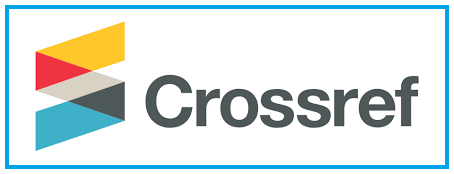IMPLEMENTASI PENDIDIKAN PERDAMAIAN DALAM MEWUJUDKAN SIKAP TOLERANSI SISWA DI SDN 1 KWANDANG, GORONTALO
Keywords:
Education, Peace, ToleranceAbstract
Peace education is a crucial element in creating a tolerant and harmonious generation, especially at the elementary school level. The implementation of this education aims to instil the values of peace, empathy, and respect for differences among students. This study explores various methods and strategies applied in peace education, including curriculum integration, extracurricular activities, and school community involvement. Students are invited to understand the importance of dialogue, conflict resolution, and cross-cultural cooperation through a holistic approach. The study results at SDN 1 Kwandang showed that students involved in the peace education program showed a significant increase in attitudes of tolerance, both in daily interactions and in conflict resolution. In addition, they also showed a decrease in aggressive behavior and an increase in social skills. The importance of the role of teachers and parents in supporting peace education is also highlighted, where collaboration between schools and families can strengthen the values taught. Thus, peace education not only functions as a subject but also as a foundation for student character development. This study recommends strengthening peace education programs in elementary schools as a strategic step to build sustainable attitudes of tolerance and create a more inclusive and peaceful learning environment.
Downloads
References
Donnelly, J. (2013). Universal Human Rights in Theory and Practice. Ithaca: Cornell University Press.
Durrheim, K., & Dixon, J. (2012). Racial Encounters: The Social Psychology of Tolerance in the Post-Apartheid Era. Journal of Peace Psychology, 18(3), 239-252.
Galtung, J. (1990). Cultural Violence. Journal of Peace Research, 27(3), 291-305.
Lederach, J. P. (1997). Building Peace: Sustainable Reconciliation in Divided Societies. Washington, DC: United States Institute of Peace Press.
Miller, D. (2014). Toleration and the Limits of Tolerance. Cambridge: Cambridge University Press.
Mutz, D. C. (2015). In-Group Favoritism and Out-Group Hostility in the Media. Political Behavior, 37(2), 257-277.
O’Connor, R. (2017). Globalization and Tolerance: The Role of Education. International Journal of Educational Development, 56, 17-24.
S., & Vandenbroucke, A. (2010). The Value of Tolerance: A Philosophical Perspective. Journal of Ethics, 14(3), 255-275.
Rummens, S., & Vandenbroucke, A. (2010). The Value of Tolerance: A Philosophical Perspective. Journal of Ethics, 14(3), 255-275.
Sisk, T. (2008). Toward a New Generation of Tolerance. Journal of Peace Education, 5(2), 111-130.
Smith, J. (2017). "Peace Education in Elementary Schools" Journal of Peace Education, 25(2), 145-162
Jones, A. (2015). "Promoting Tolerance in Primary Schools" International Journal of Tolerance Education, 10(3), 201-215
Brown, L. (2019). "Challenges of Peace Education in Primary Schools" Challenges in Education, 15(4), 321-335
Smith, P. (2005). The Role of Tolerance in Society. Journal of Social Philosophy, 36(2), 180-192.
UNESCO. (1995). Declaration of Principles on Tolerance.
UNESCO. (2015). Global Action Programme on Education for Sustainable Development. Paris: UNESCO.
Downloads
Published
How to Cite
Issue
Section
License
Copyright (c) 2024 Samsi Pomalingo, Wirna Tangahu

This work is licensed under a Creative Commons Attribution-ShareAlike 4.0 International License.









